Stovepipe politics in Wendell: 3 selectmen arrested in 1932 after contentious election
|
Published: 03-09-2024 3:07 PM
Modified: 03-10-2024 8:16 PM |
In the 1930s, Wendell ushered in events that later became known as the town’s “Stovepipe Politics Era.” This time period involved a 1931 race for selectman between challenger Ozro D. Baker and longtime Selectman Charles Ballou, a Town Meeting location that had a stovepipe running down the ceiling of the middle aisle, a court case and selectman being jailed.
Baker, a town politician and logger who owned property on Mormon Hollow Road in Wendell as well as in Millers Falls, was running against Ballou. Baker was challenging Ballou on the grounds that Ballou had been in his office too long and it was time for a change, said Ed Hines, president of the Wendell Historical Society.
Ballou was a farmer, a horse and cattle trader, and a prominent member of the Wendell Grange. He began his political career in Wendell when he was elected constable in 1890, Hines said, serving in that role, as well as assessor, from 1896 to 1899. He was elected selectman — a three-year term — for the first time in 1904.
“He kept getting reelected until 1941,” Hines said. “At the same time, he served in other town offices simultaneously to the point where (at some points) he almost ran the town single-handedly. He kept getting reelected because he had a lot of supporters. As a town politician he was very persuasive.”
The 1930, 1931 and 1932, Town Meetings — according to the book “Wendell Massachusetts: Its Settlers and Citizenry, 1752-1900,” by Pamela A. Richardson and Thomas E. Sawin (1810-1873) — had become so heated that State Police were asked to attend due to concerns over explosive outbursts.
“That building in the 1930s was heated with a stovepipe running above the middle aisle that people would have to walk under,” Hines said. “That stovepipe became the dividing line between two factions of Wendell citizens — those who supported Baker and those who supported Ballou.”
“In 1931, having lost the race for selectman, Baker asked for a recount and challenged the right of some people to vote, claiming they were not residents of town,” according to Richardson and Sawin.
In 1932, before the election, Ballou, Charles Jennison and Lewis D. Bowen, the town’s selectmen, in their capacity as registrars, removed Baker and members of his family from the voter rolls, according to Richardson and Sawin.
Article continues after...
Yesterday's Most Read Articles
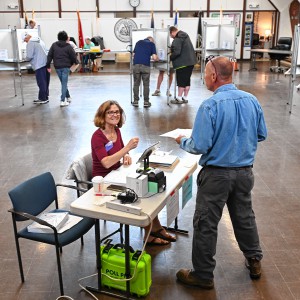 Political newcomer defeats Shores Ness for Deerfield Selectboard seat
Political newcomer defeats Shores Ness for Deerfield Selectboard seat
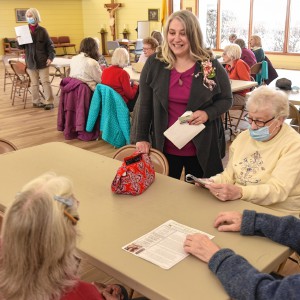 South County Senior Center opts not to renew church lease after rift over LGBTQ program
South County Senior Center opts not to renew church lease after rift over LGBTQ program
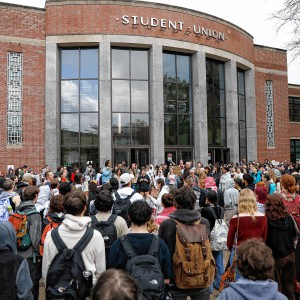 More than 130 arrested at pro-Palestinian protest at UMass
More than 130 arrested at pro-Palestinian protest at UMass
 As I See It: Between Israel and Palestine: Which side should we be on, and why?
As I See It: Between Israel and Palestine: Which side should we be on, and why?
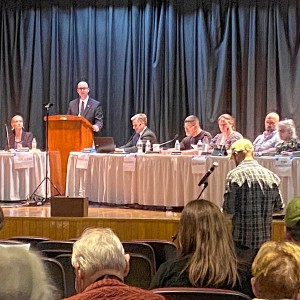 Moratoriums on large-scale solar, battery storage passed in Northfield
Moratoriums on large-scale solar, battery storage passed in Northfield
 Bridge of Flowers in Shelburne Falls to open on plant sale day, May 11
Bridge of Flowers in Shelburne Falls to open on plant sale day, May 11
There was an uproar. Baker and his family members felt they were removed for political reasons. The town justified the removal— though they had residences in both Wendell and Millers Falls, their main residence was in Millers Falls, said Hines.
In 1932, a complaint was filed in court against the three Wendell selectmen, accusing them of violating election laws, according to Richardson and Sawin. The case went to trial and the three were found guilty in April of that year and sentenced to six months in the Greenfield House of Correction.
The defendants appealed to the Massachusetts Supreme Court, which in June 1933 upheld the lower court’s decision. However, their sentence was reduced to three months.
According to Hines, the selectmen continued to run town business from jail. After serving three weeks at the Greenfield House of Correction, according to Richardson and Sawin, they received a pardon from the governor.
Upon their release, the selectmen were escorted back to town in a parade of 20 cars or more, according to Hines. It is assumed, he continued, that Baker and his family members were placed back on the voter rolls. As for the famous stovepipe at the Town Meeting, by 1935 they had changed the heating system in town hall and according to a newspaper article at that time, “the famous smoke pipe seems doomed,” said Hines, whose research on Ballou took more than a month.
“The whole point of doing this is to take what was local lore, to present it to our citizens in a way of better understanding and clarity about the things that happened in the past,” he said.
Hines said research projects like this are “especially important to do now, while renovating and restoring the Wendell Historical Society building in Wendell Depot.”
“It prepares people for what you’re going to be doing once you are opened,” he explained. “An exhibit like this online will stay online, but it can also become a physical display in the building. More importantly, it shows what we are all about here at the Wendell Historical Society. What we are doing is using all of the current tools that we have available to us in order to keep our history alive. ... This effort is not for any one person.”
Hines added that the society also welcomes help from the community at large.
“We want the community to get involved in this,” he said. “We want the community to help renovate and restore at the Depot, to help in archiving and curating our quickly growing collection, to provide financial support for project.”
The society is also interested in getting young people involved in this work.
“We are really interested in young people getting involved in all of the aspects I just mentioned. We are building with longevity in mind,” Hines said. “We need those young people to be part of the Wendell Historical Society of the future.”
More information about Ballou and his life can be found at wendellhistoricalsociety.org/BallouCollection.html.
“Wendell, Massachusetts, It’s Settlers and Citizenry 1752-1900,” by Pamela Richardson and Thomas E. Sawin (1810-1873) can be purchased at the Wendell Historical Society online store.
Carla Charter is a freelance writer from Phillipston. Her writing focuses on the history of the North Quabbin area. Contact her at cjfreelancewriter@earthlink.net.

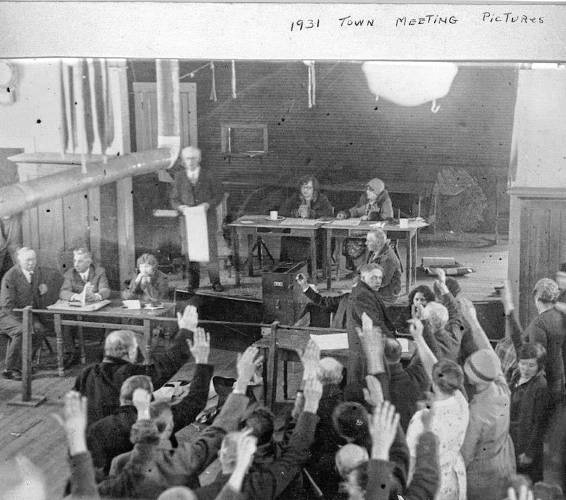
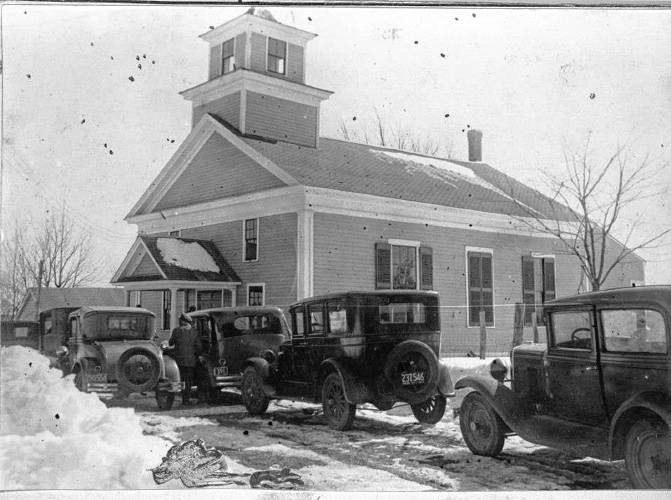

 UMass graduation speaker Colson Whitehead pulls out over quashed campus protest
UMass graduation speaker Colson Whitehead pulls out over quashed campus protest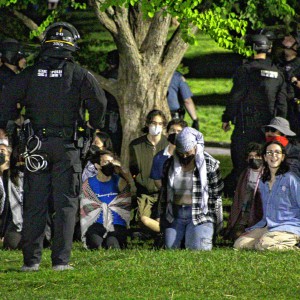 UMass student group declares no confidence in chancellor
UMass student group declares no confidence in chancellor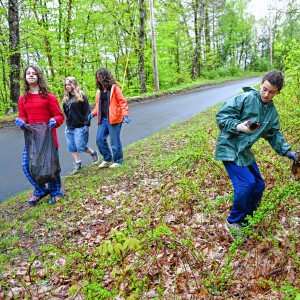 Four Rivers Climate Club organizes litter cleanup, panel on environmental activism
Four Rivers Climate Club organizes litter cleanup, panel on environmental activism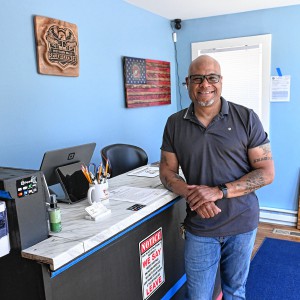 Retired police officer, veteran opens firearms training academy in Millers Falls
Retired police officer, veteran opens firearms training academy in Millers Falls
